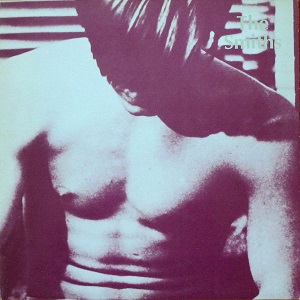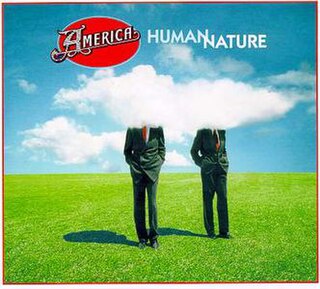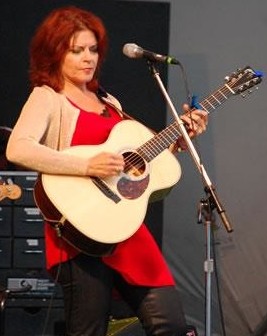
Who's Next is the fifth studio album by the English rock band the Who, released on 2 August 1971. It developed from the aborted Lifehouse project, a multi-media rock opera conceived by the group's guitarist Pete Townshend as a follow-up to the band's 1969 album Tommy. The project was cancelled owing to its complexity and to conflicts with Kit Lambert, the band's manager, but the group salvaged some of the songs, without the connecting story elements, to release as their next album. Eight of the nine songs on Who's Next were from Lifehouse, with the lone exception being the John Entwistle-penned "My Wife". Ultimately, the remaining Lifehouse tracks would all be released on other albums throughout the next decade.

The B-52s, originally presented as the B-52's, are an American new wave band formed in Athens, Georgia, in 1976. The original lineup consisted of Fred Schneider, Kate Pierson, Cindy Wilson, Ricky Wilson (guitar), and Keith Strickland. Ricky Wilson died of AIDS-related illness in 1985, and Strickland switched from drums to lead guitar. The band has also added various members for albums and live performances.

Obscured by Clouds is the seventh studio album by the English progressive rock band Pink Floyd, released on 2 June 1972 by Harvest and Capitol Records. It serves as the soundtrack for the French film La Vallée, by Barbet Schroeder. It was recorded in two sessions in France, while Pink Floyd were in the midst of touring, and produced by the band.

The Folk Implosion is an American band founded in the early 1990s by Lou Barlow and John Davis. It was initially a side-project started by Barlow to explore different territory than that being canvassed with his primary band at the time, Sebadoh. The name is a play on the Jon Spencer Blues Explosion. The band was on hiatus from 2004 to 2020.

Empty Glass is the second solo studio album by English rock musician Pete Townshend, and his first composed of original material, released on 21 April 1980 by Atco Records.

The Smiths is the debut studio album by English rock band the Smiths, released on 20 February 1984 by Rough Trade Records. After the original production by Troy Tate was felt to be inadequate, John Porter re-recorded the album in London, Manchester and Stockport during breaks in the band's UK tour during September 1983.
All About Eve were an English rock band. The initial creative core consisted of Coventry-born Julianne Regan (vocals), Huddersfield-born Tim Bricheno (guitar) and Andy Cousin, with other members changing over the years. Their highest-charting UK single was "Martha's Harbour" (1988). The band was active from 1984 to 1993, then 1999 to 2004, achieving four UK Top-50 albums. The band had been recognised for their "unique, folk-rock-influenced take" on the gothic rock style, and Regan has been described as "certainly one of the more talented singers" of the scene in the late 1980s.

Wild Life is the debut studio album by the British-American rock band Wings and the third studio album by Paul McCartney after the breakup of the Beatles. The album was mainly recorded in seven sessions between 24 July and 4 September 1971, at EMI Studios by McCartney, his wife Linda, session drummer Denny Seiwell, whom they had worked with on the McCartneys' previous album Ram, and guitarist Denny Laine, formerly of the English rock band the Moody Blues. It was released by Apple Records on 7 December in the UK and US, to lukewarm critical and commercial reaction.

Bark at the Moon is the third studio album by English heavy metal singer Ozzy Osbourne, released on 18 November 1983 in the US and on 2 December 1983 in the UK. The album marks Ozzy's change to a synth infused pop-metal sound, with both its "sonic production, and in Ozzy's imaging".

Elvis Presley is the debut studio album by American rock and roll singer Elvis Presley. It was released by RCA Victor, on March 23, 1956,. The recording sessions took place on January 10 and January 11 at the RCA Victor Studios in Nashville, Tennessee, and on January 30 and January 31 at the RCA Victor studios in New York. Additional material originated from sessions at Sun Studio in Memphis, Tennessee, on July 5, August 19 and September 10, 1954, and on July 11, 1955.
"Blue Moon" is a popular song written by Richard Rodgers and Lorenz Hart in 1934 that has become a standard ballad. Early recordings included those by Connee Boswell and by Al Bowlly in 1935. The song was a hit twice in 1949, with successful recordings in the U.S. by Billy Eckstine and Mel Tormé.

"See Emily Play" is a song by the English rock band Pink Floyd, released as their second single on 16 June 1967 on the Columbia label. Written by original frontman Syd Barrett, it was released as a non-album single, but appeared as the opening track of Pink Floyd, the US edition of the band's debut album The Piper at the Gates of Dawn (1967).

Slapp Happy is a studio album by German/British avant-pop group Slapp Happy, recorded at Virgin Records' Manor Studio in 1974.
"Fat Old Sun" is a song by English rock band Pink Floyd, written and sung by David Gilmour. It appears on their 1970 album Atom Heart Mother, and was performed live by the group from 1970-71 in a different arrangement. Gilmour has since played the track on several of his solo tours.

Elvis is the second studio album by American rock and roll singer Elvis Presley, released by RCA Victor on October 19, 1956 in mono. Recording sessions took place on September 1, September 2, and September 3 at Radio Recorders in Hollywood, with one track left over from the sessions for Presley's debut album at the RCA Victor recording studios on January 30 in New York. It spent four weeks at #1 on the Billboard Top Pop Albums chart that year, making Presley the first recording artist to have both albums go straight to number one in the same year. It would go on to spend 5 weeks at #1 in total. It was certified Gold on February 17, 1960, and Platinum on August 10, 2011, by the Recording Industry Association of America.

Encore: More Greatest Hits is the second major label compilation album by American folk rock duo America, released by Rhino Records on June 24, 1991.

Human Nature is the 14th studio album by American folk rock duo America, released in 1998 by Oxygen Records. It was their first new studio album since 1994's Hourglass.

The discography of Rosanne Cash, an American singer-songwriter, consists of 14 studio albums, six compilation albums, and 39 singles. The daughter of Johnny Cash, Rosanne Cash recorded her self-titled debut album in 1978 under the German label Ariola. After signing with Columbia Records in 1979, Cash's second studio album Right or Wrong was released. Its lead single "No Memories Hangin' Around" reached the Top 20 on the Billboard Hot Country Songs chart. Cash's third studio release, Seven Year Ache (1981), gained major success when the title track peaked at number one on the Billboard Country chart. It was then followed by "My Baby Thinks He's a Train" and "Blue Moon with a Heartache," which also reached the top spot. The album's follow-up effort, Somewhere in the Stars (1982) produced three Top 20 hits on the Billboard chart.

"Goin' Back" is a song written by Gerry Goffin and Carole King in 1966. It describes the loss of innocence that comes with adulthood, along with an attempt, on the part of the singer, to recapture that youthful innocence.

"Bluebird" is a song recorded by the American rock group Buffalo Springfield. It was written and produced by Stephen Stills, with co-production by Ahmet Ertegun. In June 1967, Atco Records released it as a single to follow-up their hit "For What It's Worth" (1966).

















